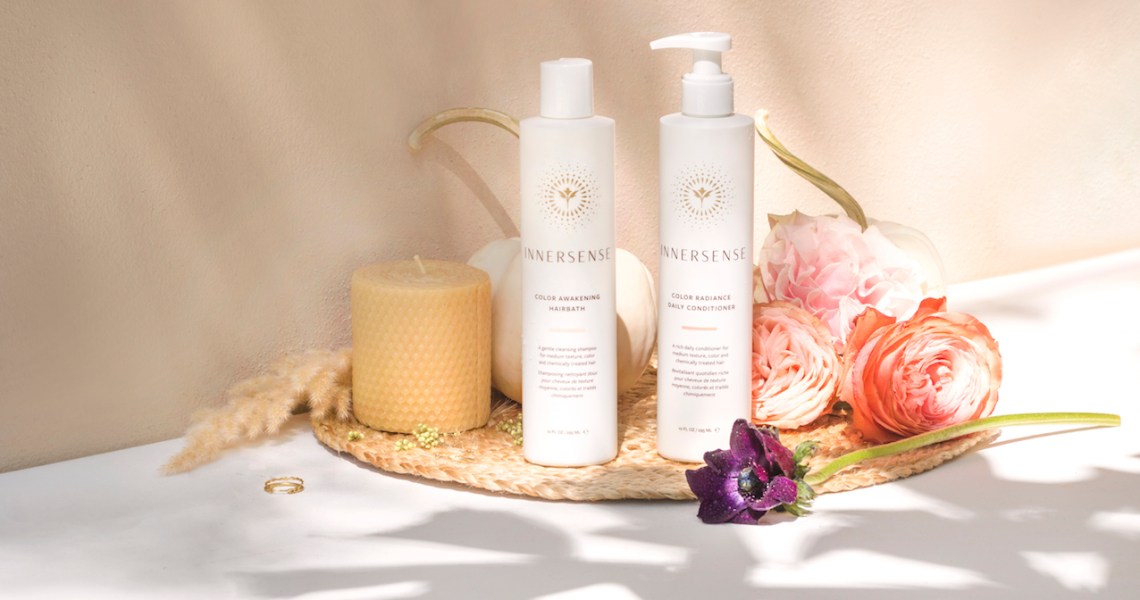Despite the challenges of 2020, this year has been positive for sustainability, as both large and small companies have made inroads into becoming more eco-friendly.
Though shifts in the beauty industry often stem from the indie sector, sustainability is an arduous and expensive undertaking. Conglomerates and legacy brands have been able to make sizable shifts in their supply chain. For its part, 14-year-old indie, clean hair-care brand Innersense Organic Beauty has managed to carve out a path for itself to achieve 100% post-consumer recycled bottles by the first quarter of 2021. The brand is sold through Ulta, Credo, The Detox Market and 5,500 professional salons; and it achieved 100% year-over-year sales growth over the last three years, while its DTC e-commerce sales grew 200% year-over-year in 2020, said Greg Starkman, co-founder of Innersense Organic Beauty.
Greg Starkman said that in 2017, he and co-founder Joanne Starkman wanted to take sustainability more seriously, but were unsure how to begin. They employed the outside consultancy Plastic Pollution Solutions to draft initiatives. This included joining 1% for the Planet consortium, in which members contribute at least 1% of their annual sales to environmental causes. It also helped Innersense to find sustainable third-party partners and reduce its virgin plastic and packaging waste.
“We’re not a very transactional company,” said Greg Starkman. “We’re about content, we’re about bringing value to somebody. Our ecosystem is about wellness and women’s health; sustainability and the environment [will be] a big part of that messaging moving forward.”
In 2020, Innersense began a partnership with Plastic Bank, an organization that sources ocean-bound plastic and appropriately recycles it for reuse. In 2020, Plastic Bank will capture the equivalent of five-years of Innersense’ss plastic output, which costs the brand $100,000. Moving forward, Innersense plans to finance the capture of 150% of its annual plastic output. In addition to its 100% PCR plans, 90% of all its packaging components, such as pumps and caps, will feature recyclable materials by 2022, according to the brand. Innersense’s nearly all-white packaging makes its 100% PCR goals more attainable, as it’s easier to recycle than dyed plastic or a composite resin blend, said Greg Starkman.
“We made a decision not to use bio-plastics or biomaterials because we feel those solutions are misleading; they’re not biodegradable or recyclable,” he said, referring to industrial compost packaging that cannot be composted in a backyard or at most city-owned composts. “Our customers are knowledgeable, not only about clean beauty, but also as environmentalists.” Innersense’s core customers are 25- to 35-years-old.
Its last two years of sustainable initiatives have not impacted the retail prices of Innersense products, which range from $12-$42. Innersense has absorbed the additional costs, including a 15% premium on PCR materials, and there are no plans to increase the price of its products.
Ad position: web_incontent_pos1
For consumers, Innersense launched a People & Planet page under the “About” section of its DTC website in April, said Joanne Starkman. The page includes a mission statement and 16 different sections about the brand’s sustainability and corporate social responsibility initiatives. Otherwise, Innersense relies on email marketing and unpaid social posts to share its sustainability messaging to existing customers. In-store merchandising through Ulta’s Conscious Beauty section is key to promoting its messaging to prospective customers. Joanne Starkman said that educating salon professionals on the brand’s goals is also important, given the one-to-one conversations that stylists have with customers. Salon sales account for 55% of the brand’s total revenue.
“Salon professionals are becoming more intelligent now, and salons are where wellness happens,” said Joanne Starkman. “It’s hard for people to educate themselves to look within and start [becoming sustainable] within their small circle. [We try to educate on] the small things you can start with.”




